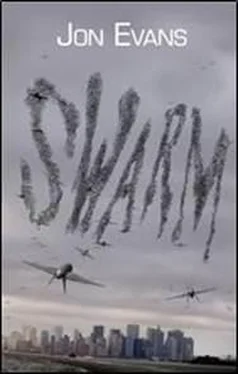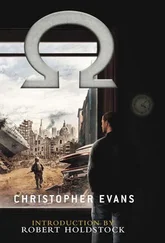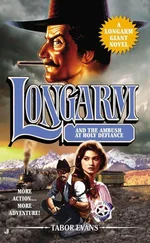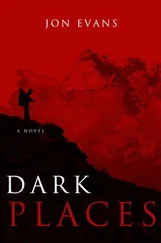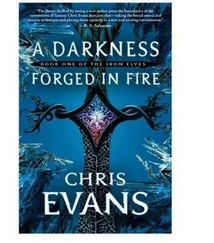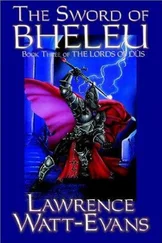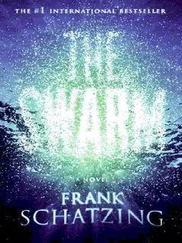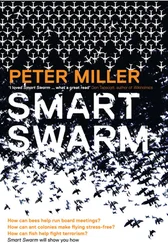Sophie groaned aloud, as if she had been cheated.
“Game over,” I muttered, hardly hearing myself. We had come so close, but it hadn’t been enough. I realized with horror that now we couldn’t stop if we wanted to, it would take too long to detach the raft from the USV. We had left them with no option but to shoot us, and they would almost certainly wound or kill some or all of us before they sank the raft.
One of them levelled his weapon at us.
I closed my eyes. I felt like I was already drowning.
Nothing happened.
When I looked up I saw the three of them gesticulating violently. Whoever didn’t want to shoot us won the argument. Instead they climbed to the bridge, where they tried to restart the Ark Royale . Black smoke immediately began to rise from its engine, which ground to a loud and painful halt. Meanwhile we moved away unharmed. Soon we were out of rifle range; and then, slowly, the white dot that was the Ark Royale vanished on that line where blue ocean met cloudy sky.
The life raft had an onboard survival kit with fresh water, a solar still, some tasteless but allegedly nutritious crackers, sunscreen, a first-aid kit, rope, signal flares, paddles, life jackets, and a transmitter that would broadcast a distress signal to the world. We decided not to use that last just yet: no sense painting a bullseye on ourselves when our hunters had doubtless already called in assistance. There was a brief dispute over the water, but eventually the carry-it-in-you crowd, which consisted of me and Sophie, won out over the ration-it faction by the simple expedient of drinking our share and ignoring Jesse and Anya’s protests. It was stale but the sweetest I had ever tasted. Captivity and escape were thirsty work.
We were being towed due north, towards Haiti, but we were still far from land when the air began to grow damp and smell faintly of ozone. Shadowy cloud-patterns like bruises swirled in with amazing speed from the horizon. Gusts whipped across the water as a darkness almost like night fell. In all the excitement I had forgotten about Jesse’s warning of an oncoming tropical storm.
I wanted to shout out a protest to the universe. This wasn’t fair. Our escape had seemed a triumph, if a nigh-inexplicable one; but it had left us out in open ocean, on a flimsy raft, and there was a storm coming, a big one, a bad one.
It was Anya who said what we were all thinking: “Maybe we should have stayed on board.”
She sounded bitterly amused by this joke that might well kill us all.
If we hadn’t donned life jackets and roped ourselves to the raft we wouldn’t have survived. The storm tossed us around like a twig, and once, memorably, like a Frisbee. I lost count of how many times the raft flipped over like a pancake. Upside down was actually better; the sea was warmer than the rain, and we could keep our heads in the air pocket beneath, mostly protected from the elements, other than the Caribbean surging up and down some ten metres every few seconds, which was dizzyingly unpleasant but still much better than facing the onslaught full-on. There were periods when the rain hit so hard it left bruises on Sophie’s sensitive skin.
We had no idea how long the storm lasted; while we were in it, time seemed unstuck. My only clear memory of the ordeal was the time we flipped back over and I noticed, distantly, that the sky was growing brighter. Shortly afterwards the weather unravelled with amazing speed. One moment I saw faint tendrils of light on the horizon; the next, it seemed, the sun burst through blue sky, and warmed our battered bodies as we lay sprawled on what was left of the raft. Two of its compartments sagged, punctured during the storm. If we had lost a third we would probably have sunk.
Our few possessions not lost forever were utterly waterlogged. My iPhone was still in my pocket but would never function again. We basked like reptiles in the sun, too exhausted by the effort of survival to speak or stand until that faraway ball of nuclear flame warmed and roused us a little.
Anya was the first to stand, and promptly reeled as if drunk; our collective sense of balance had been knocked more than a little askew.
“Anything?” Jesse asked, as she peered into the distance.
She shook her head. As the ramifications of that began to hit me, my relief at our survival began to warp into new fear. I had been operating on the simple assumption that enduring the storm meant survival. But if we had been blown far offshore, it only meant a longer and more lingering death by exposure.
“There’s a cloud bank,” she said, squinting. “That might mean land.”
“We should paddle that way,” Jesse said.
But we had no actual paddles, and without them we were unable to affect the raft’s course. We could splash at the water with our hands, or stick our legs in and kick, but in the end the ocean swept us where it would: in this case, parallel to and slightly away from that line of wispy clouds, deeper into the endless sea.
As the sun neared its zenith it became an enemy. The ocean lapped at our battered raft. A few birds skittered across the sky. Time crawled by meaninglessly, and my headache began to return.
I left Anya and Jesse to try to play sailor and huddled miserably beside Sophie in the bottom of the raft. Her trembling hand crept out and took mine. I squeezed it reassuringly. When that didn’t work, I reached out and took her into my arms. She held me gratefully.
I remembered what Lisa had said in the jungle about enjoying every moment, especially the bad ones, and I tried to savour my breaths, to relish this awful experience. It wasn’t easy. I reminded myself that we could have died back on the boat. Living only hours longer was still a bonus. Every second, every breath, was a precious gift.
“I’m really scared,” Sophie whispered into my ear.
I nodded. It had been better when we could do something and at least pretend to be captains of our fate. This drifting and drawn-out uncertainty, surrendered to the elements, was in its own quiet way worse than the storm.
“James,” Sophie murmured. “Listen. There’s something I need to tell you. Just in case. Listen carefully. My neural nets. There’s not just a kill switch. There’s a built-in override sequence you can use to seize control.”
I didn’t understand why she was talking technical trivia. “In case of what?”
“In case something happens to me. Let’s face it. I’m not exactly durable. If anyone doesn’t get out of this, it’ll be me.”
“Don’t even say that.”
“Shut up and listen. This might be important. You have to establish an SNP session first.” Serial Neural Protocol, the language Sophie had designed for her neural networks. “Then you send a particular character block, it looks like a public key, I sent an interleaved version to your Hushmail account a long time ago and told you it was a PGP key I wanted you to keep for me as backup. You remember that? You still have it?” I nodded. “Good. That’s the override sequence. After that all command packets you send are obeyed without question until you close the session.”
“A back door,” I said. “You built a back door into your own system. Why?”
“I’m sorry. There were so many things I should have told you. I’m so sorry. I just – it was like I didn’t know how.”
“Things like what?”
I couldn’t tell if the sound that followed was a laugh or a sob. “Like my name.”
I turned my head to look at her more directly. We were lying so close together that our noses touched. “Your name? ”
“Listen.” Her voice was low but fraught. “When I was sixteen, I was just a kid, I did some bad things. Not just crimes. Really bad things. People died because of what I did. I didn’t know it at the time, but I should have. And when I met you, after my dad died, I was trying to get away from all that, to reinvent myself, so it felt like I needed to obfuscate my past. Put all the bad things I’d done in a box and throw it away and not have it be part of my new life with you. You understand?”
Читать дальше
